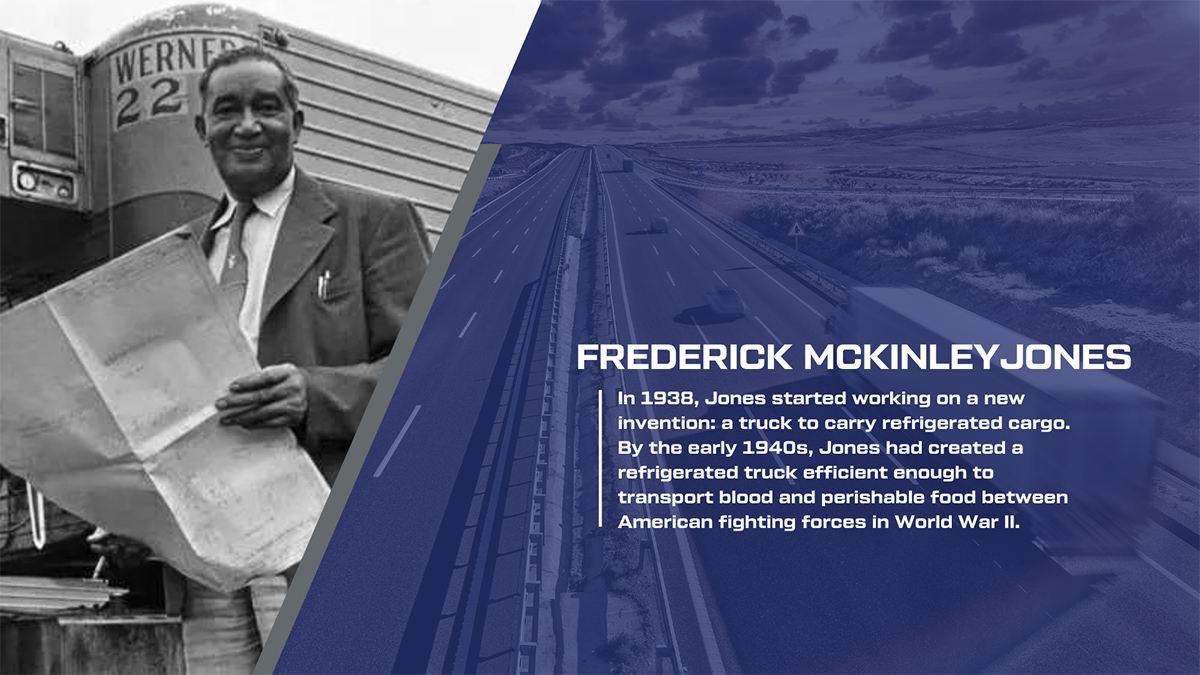Innovation drives the transportation industry. It always has. But our engine of innovation hasn’t always driven on all cylinders. For example, our national history of racial segregation stopped many 20th century African-American inventors from shaping our industry.
That’s one reason Black History Month, each February, is so important. This special month gives our industry a way to celebrate African-American inventors who broke through society’s barriers and contributed to our industry.
One of those contributors is Frederick McKinley Jones who grew up in Covington, Kentucky, across the Ohio River from Cincinnati. From an early age, Jones learned to support himself. By 1904, at age 11, he’d landed a job as a janitor in a machine shop in Cincinnati.
Jones took advantage of his proximity to engines and machines. He learned how to fix them. He learned how to make them more efficient. He learned so much that he became a foreman in the shop by 1912, before moving to Minnesota where he earned his engineering license.
A few years later, World War I interrupted Jones’ career trajectory, but it also gave him a new opportunity: to learn about radio transmitters and communications. He used this knowledge to contribute to the budding film industry after the war.
So, what does Jones have to do with transportation? A lot. In 1938, Jones started work on a new invention: a truck to carry refrigerated cargo. By the early 1940s, Jones had created a refrigerated truck efficient enough to transport blood and perishable food between American fighting forces in World War II.
Of course, refrigerated transportation had value beyond the war effort. Back in the U.S., after the war, Jones’ invention revolutionized the grocery business, allowing food to stay fresh on long-distance drives. Refrigerated transit also bolstered public health by allowing long-distance shipments of antibiotics.
Jones died of lung cancer in 1961. Thirty years later, in 1991, President George H.W. Bush awarded Jones the National Medal of Technology, making Jones the first African-American to receive the medal.
Though he didn’t live long enough to experience this honor, we experience the impact of Jones’ work regularly — every time we buy a carton of milk from a grocery store, pick up a refrigerated antibiotic from the pharmacy, or eat at a restaurant.
That’s a level of innovation worth celebrating.
